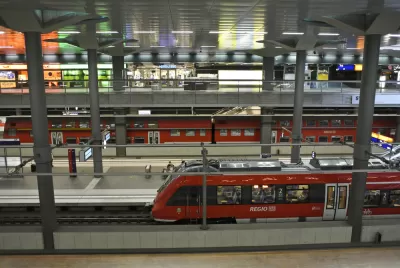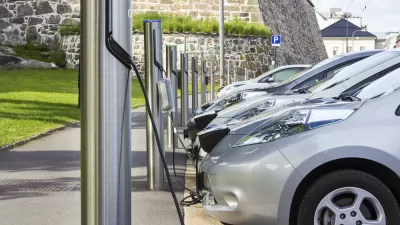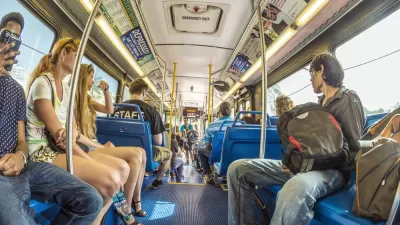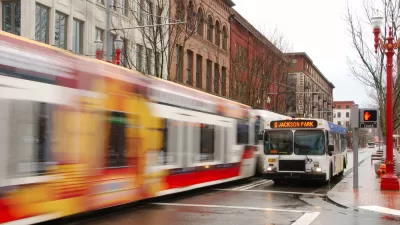With the transportation sector accounting for a third of urban carbon emissions, cities around the world are seeking new ways to electrify their transit fleets and reduce fossil fuel consumption.

As Somini Sengupta reports, more and more cities around the world are taking steps to reduce fossil fuel consumption in their transportation sector and electrify public transit.
Berlin is reviving electric tram lines that were ripped out when the Berlin Wall went up. Bogotá is building cable cars that cut through the clouds to connect working-class communities perched on faraway hills. Bergen, a city by the fjords in western Norway, is moving its public ferries away from diesel and onto batteries — a remarkable shift in a petrostate that has for decades enriched itself from the sale of oil and gas and that now wants to be a leader in marine vessels for the electric age.
"Urban transportation is central to the effort to slow climate change. Home to more than half the world’s population, cities account for more than two-thirds of global carbon dioxide emissions," with transportation as the biggest–and fastest-growing–source, accounting for roughly a third of cities' emissions. Chinese bus manufacturers are taking notice, supplying electric fleets to cities including Los Angeles and Santiago, Chile. Supporters say "the change is audible" as near-silent electric buses replace the roar of gas-powered vehicles.
"At the moment, only 16 percent of city buses worldwide are electric. The electric switch will need to accelerate, and cities will have to make mass transit more attractive, so fewer people rely on automobiles." For the growing metropolises of the developing world, electrification is expensive and challenging. "But where cities are succeeding, they’re finding that electrifying public transit can solve more than just climate problems. It can clean the air, reduce traffic jams and, ideally, make getting around town easier for ordinary people, which is why some politicians have staked their reputations on revamping transit."
FULL STORY: Trams, Cable Cars, Electric Ferries: How Cities Are Rethinking Transit

Study: Maui’s Plan to Convert Vacation Rentals to Long-Term Housing Could Cause Nearly $1 Billion Economic Loss
The plan would reduce visitor accommodation by 25,% resulting in 1,900 jobs lost.

North Texas Transit Leaders Tout Benefits of TOD for Growing Region
At a summit focused on transit-oriented development, policymakers discussed how North Texas’ expanded light rail system can serve as a tool for economic growth.

Using Old Oil and Gas Wells for Green Energy Storage
Penn State researchers have found that repurposing abandoned oil and gas wells for geothermal-assisted compressed-air energy storage can boost efficiency, reduce environmental risks, and support clean energy and job transitions.

Private Donations Propel Early Restoration of Palisades Playground
Los Angeles has secured over $1.3 million in private funding to restore the Pacific Palisades playground months ahead of schedule, creating a modern, accessible space that supports community healing after recent wildfires.

From Blight to Benefit: Early Results From California’s Equitable Cleanup Program
The Equitable Community Revitalization Grant (ECRG) program is reshaping brownfield redevelopment by prioritizing projects in low-income and environmental justice communities, emphasizing equity, transparency, and community benefits.

Planting Relief: Tackling Las Vegas Heat One Tree at a Time
Nevada Plants, a Las Vegas-based nonprofit, is combating the city’s extreme urban heat by giving away trees to residents in underserved neighborhoods, promoting shade, sustainability, and community health.
Urban Design for Planners 1: Software Tools
This six-course series explores essential urban design concepts using open source software and equips planners with the tools they need to participate fully in the urban design process.
Planning for Universal Design
Learn the tools for implementing Universal Design in planning regulations.
Ascent Environmental
Borough of Carlisle
Institute for Housing and Urban Development Studies (IHS)
City of Grandview
Harvard GSD Executive Education
Toledo-Lucas County Plan Commissions
Salt Lake City
NYU Wagner Graduate School of Public Service





























